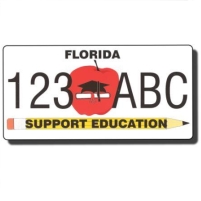Florida Goes to the Head of the Class
Wednesday, July 06, 2011

Florida does not lack for challenges in its public schools. Half of all students qualify for subsidized lunches, an indication their families may be struggling financially. And many children are the first in their homes to speak English or even consider going to college.
But Florida is nonetheless succeeding when it comes to kids, both rich and poor, being afforded the opportunity to take advanced courses that can springboard them into higher education.
An analysis of federal education data by ProPublica revealed the Sunshine State leads the country in the percentage of high school students enrolled in Advanced Placement and advanced mathematics curriculum.
This success is attributed to school officials making a concerted effort to provide high-level classes to students regardless of their socio-economic background.
ProPublica also reported that Florida’s accomplishment is contrasted by states like Kansas, Maryland and Oklahoma, where the same opportunities are “far less available in districts with poorer families.”
-Noel Brinkerhoff
Some States Still Leave Low-Income Students Behind; Others Make Surprising Gains (by Sharona Coutts and Jennifer LaFleur, ProPublica)
The Opportunity Gap (ProPublica)
- Top Stories
- Unusual News
- Where is the Money Going?
- Controversies
- U.S. and the World
- Appointments and Resignations
- Latest News
- What If China Invaded the United States?
- Donald Trump Has a Mental Health Problem and It Has a Name
- Trump Goes on Renaming Frenzy
- Trump Deports JD Vance and His Wife
- Trump Offers to Return Alaska to Russia






Comments